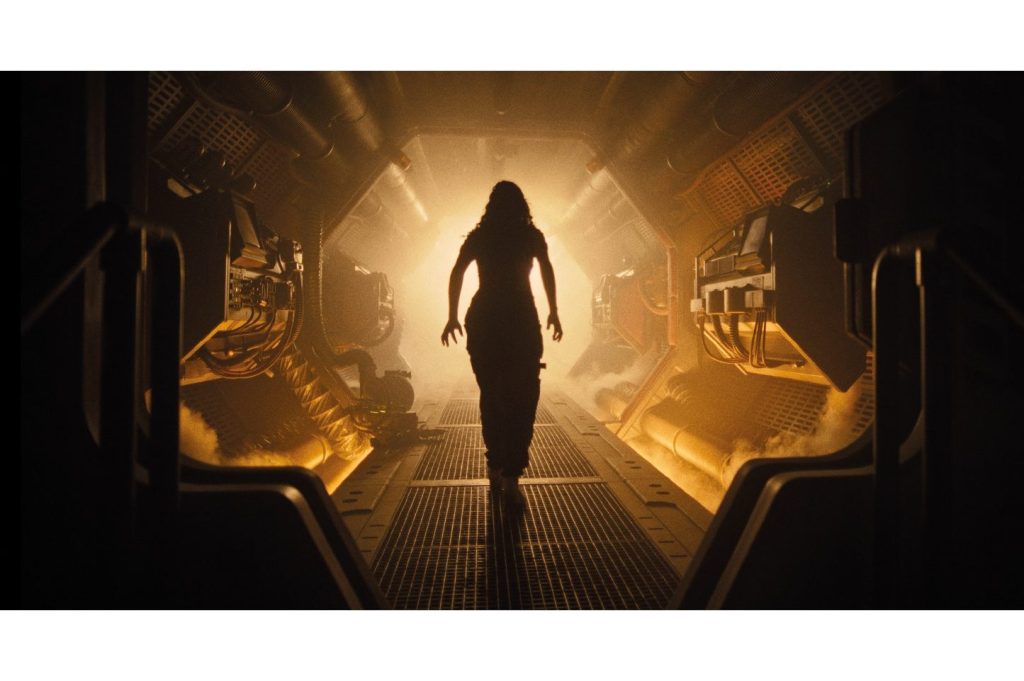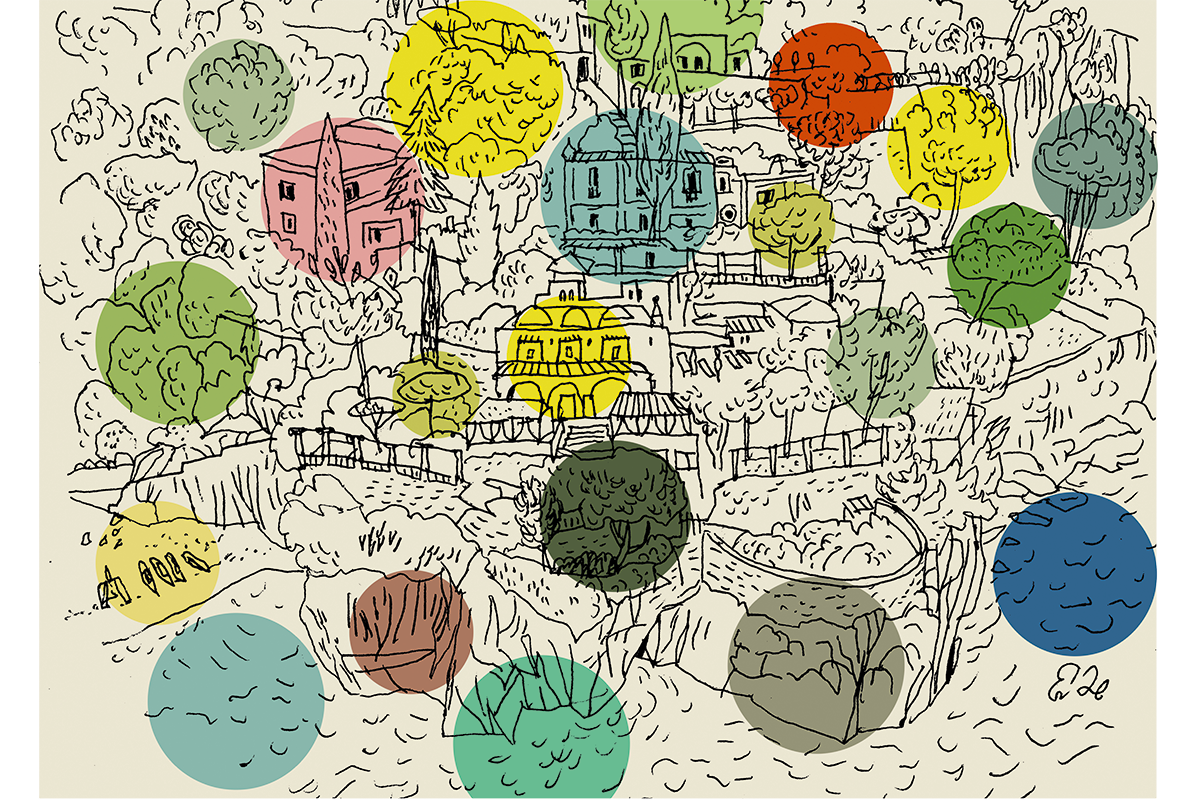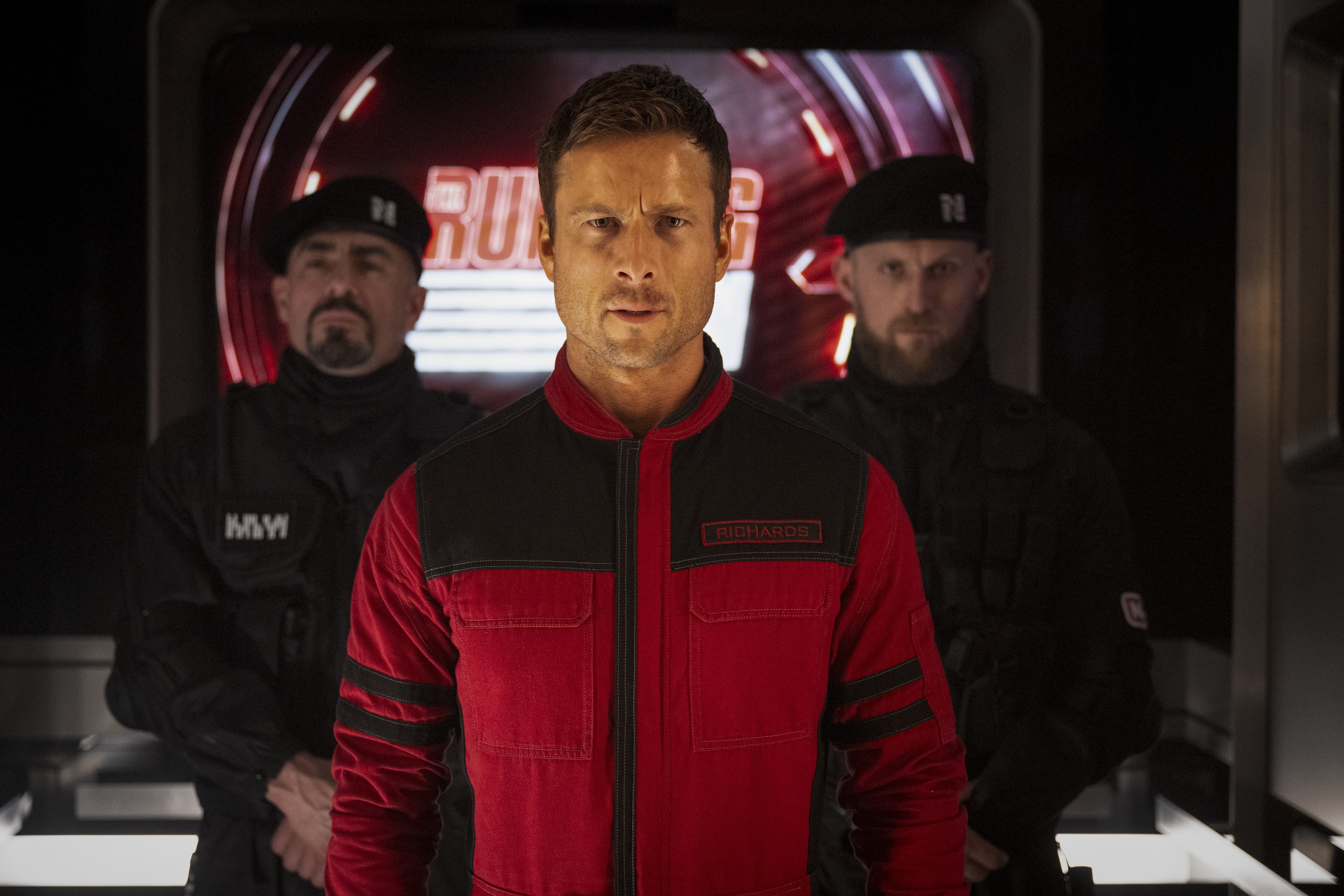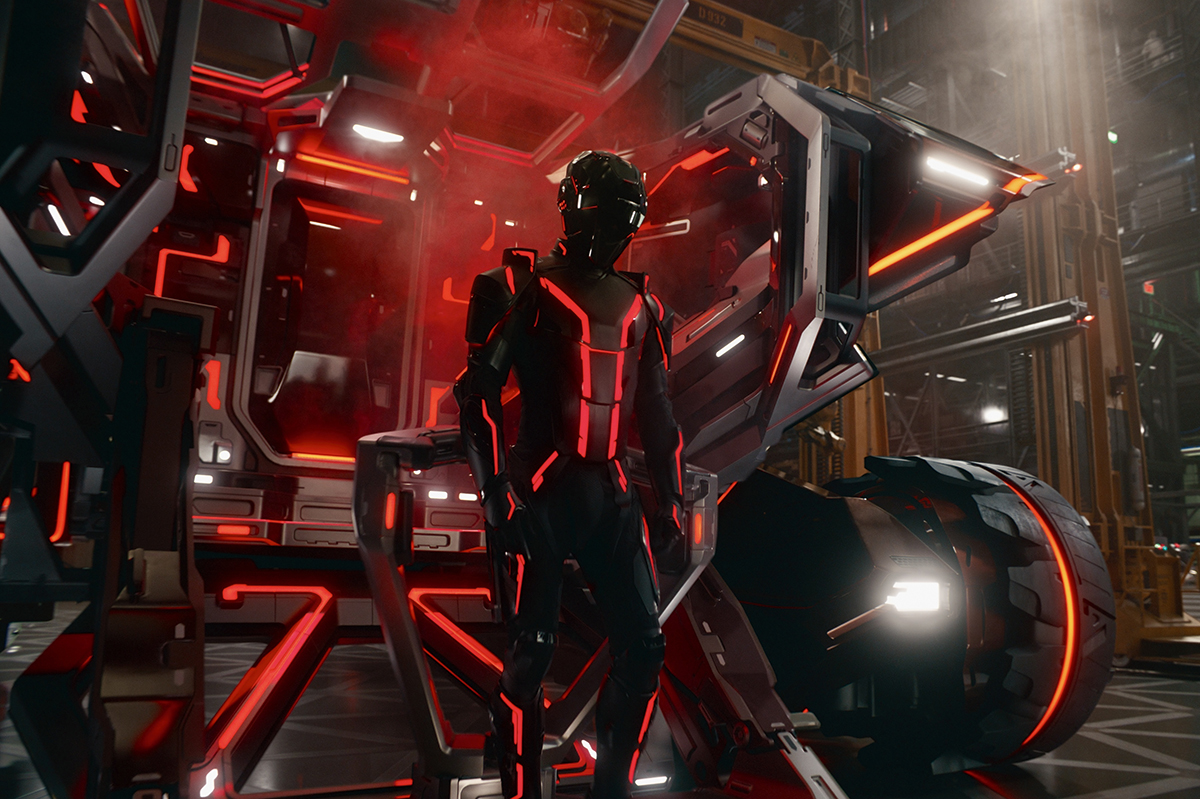In the Alien films, a xenomorph is a monstrous, all-consuming life form that exists only to make more and more copies of itself. Once the first xenomorph appears, it’s only a matter of time until all those gleaming chrome walls will be covered in creepy black goo and the humans suspended lifeless from the ceiling in webs of slime with their chests ripped open. The xenomorphs are not curious about the world. They don’t care that they’re in a spaceship in the middle of outer space. As far as they’re concerned, we’re all just warm bodies in which to incubate their young. The only thing they want to do is make more and more and more and more of themselves.
Anyway, Alien: Romulus is the seventh film about these particular monsters. According to the producers, the film takes the franchise “back to its roots.” So we get a group of grimy crew-mates piloting a big rust-bucket of a spaceship who pick up an extraterrestrial stowaway and end up having to use their wits and courage to survive as it gobbles them up, one by one.
And it’s not a bad film. It’s nicely creepy, the special effects are good, the acting is perfectly serviceable. In fact, I could give you a normal review of Alien: Romulus, but just writing this is making me feel a little crazy. It’s not a bad film, but it’s also a direct copy of a much better film that already exists. That film is called Alien, and it came out in 1979. It had Sigourney Weaver in it. It hasn’t vanished. If you have a Disney+ subscription or a torrent client, you can watch it tonight. Why have we made it again? What’s the point? Why have we spent the past forty-five years — which is longer than I’ve been alive — making seven different versions of the same film? What on Earth is going on?
People do like to repeat things. Young children, in particular, like to watch the same film over and over again. Lately, mass culture has been treating us all like a bunch of overgrown children, and it’s not like we’ve done much to suggest they’ve got us wrong. Freud thought children repeat things because they’re trying to process trauma. G.K. Chesterton had a sunnier view of it: “Because children have abounding vitality, because they are in spirit fierce and free, therefore they want things repeated and unchanged. They always say, ‘Do it again,’ and the grown-up person does it again until he is nearly dead. Grown-up people are not strong enough to exult in monotony.”
But Chesterton never had any children of his own: he missed out on the one very particular way adults have of “doing it again.” This is what the Alien films are actually about. The reason the 1979 original is a great film and not just a fun monster flick is that it’s really about us; the xenomorph is us. Its alien form is just a hideous mashup of our ordinary, slimy human genitalia. This monster is your libido: a ravenous, irrational thing that wants to use your body to breed. The whole thing is about the horror of pregnancy, of childbirth, of sexuality in general: our human compulsion to procreate and endlessly repeat ourselves. The mad compulsion to do it again and again and again. That’s why these films always need the android, clinically asexual, standing outside this whole messy business so you can see it more clearly. “I admire its purity,” says an android in the first Alien.
Over the past forty-five years, though, the Alien franchise trusts us less and less to notice these obvious themes for ourselves. The latest one really bonks you over the head with it by putting an actual pregnant woman on board the ship. There’s a final act that essentially dispenses with the entire metaphor that’s sustained the franchise for so long. Our heroes might as well turn to the camera and say: “Childbirth is pretty creepy, huh? Procreation — weird, am I right?” It’s a terrible ending, but it gives me hope. When a franchise has exhausted its own central metaphor like this, surely it can’t limp on for much longer. Please, please, let this one be the last.
This article was originally published in The Spectator’s UK magazine. Subscribe to the World edition here.






















Leave a Reply